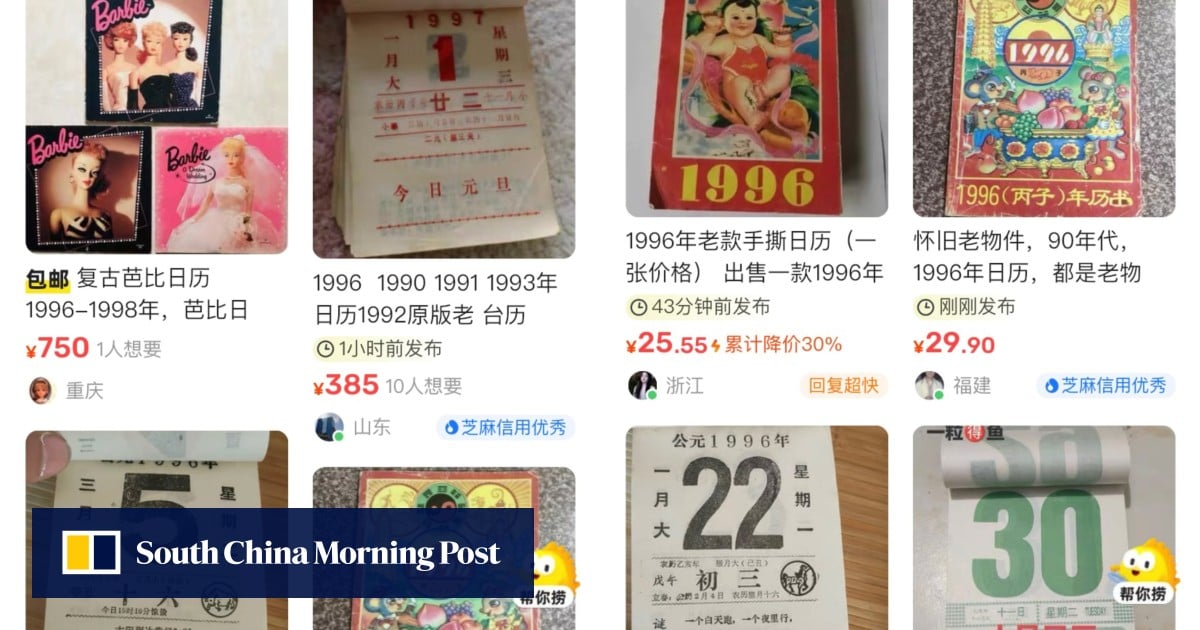Over the past week, searches for 1996 calendars on Xianyu rose 600 per cent and transactions were at an all-time high, according to Economic View, a media outlet owned by state-affiliated news agency China News Service.
6-year wait over, what to expect from Wong Kar-wai’s Blossoms Shanghai
6-year wait over, what to expect from Wong Kar-wai’s Blossoms Shanghai
“Since about New Year’s Day this year, the daily trading volume and inventory of 1996 vintage calendars have been trending higher, with the volume reaching a peak on January 9 when more than 400 people searched for the keyword ‘1996 calendar’ at the same time,” a Xianyu staff member told Economic View.
Some of the 1996 calendars are decorated with traditional Chinese motifs such as auspicious symbols and celestial beings. Others feature overseas pop culture idols, including Hong Kong celebrities and American and Japanese cartoon characters such as Mickey Mouse, Ultraman and Cardcaptor – remnants of an era when Beijing largely welcomed outside influence in the economy, culture and fashion.
Other vintage calendars for sale feature modern Chinese elements, such as images of Mao Zedong, pages from state-owned newspapers and pictures of the Beijing Guoan Football Club.
A wave of 1990s nostalgia has swept Chinese social media, much of it driven by the Chinese television series Blossoms Shanghai, directed by top Hong Kong director Wong Kar-wai.
Thousands of social media users have shared personal photos showing major Chinese cities in the 1990s, including Shanghai, Shenzhen and Beijing.
“I remember that Shanghai was already very prosperous in the 1990s, with the neon lights of Nanjing Road, the night city of the new Shanghai Railway Station, the seafood restaurants on Huanghe Road and the fireworks on New Year’s Eve every year,” a Xiaohongshu user wrote.
“It was a time full of neon lights. People dressed in new styles that showed their own personalities. It was a busy, prosperous, booming time,” said another.
However, some commenters from elsewhere in China noted that their 1990s experience was completely different as the local economies of their hometowns lagged behind those of the top Chinese megacities.







